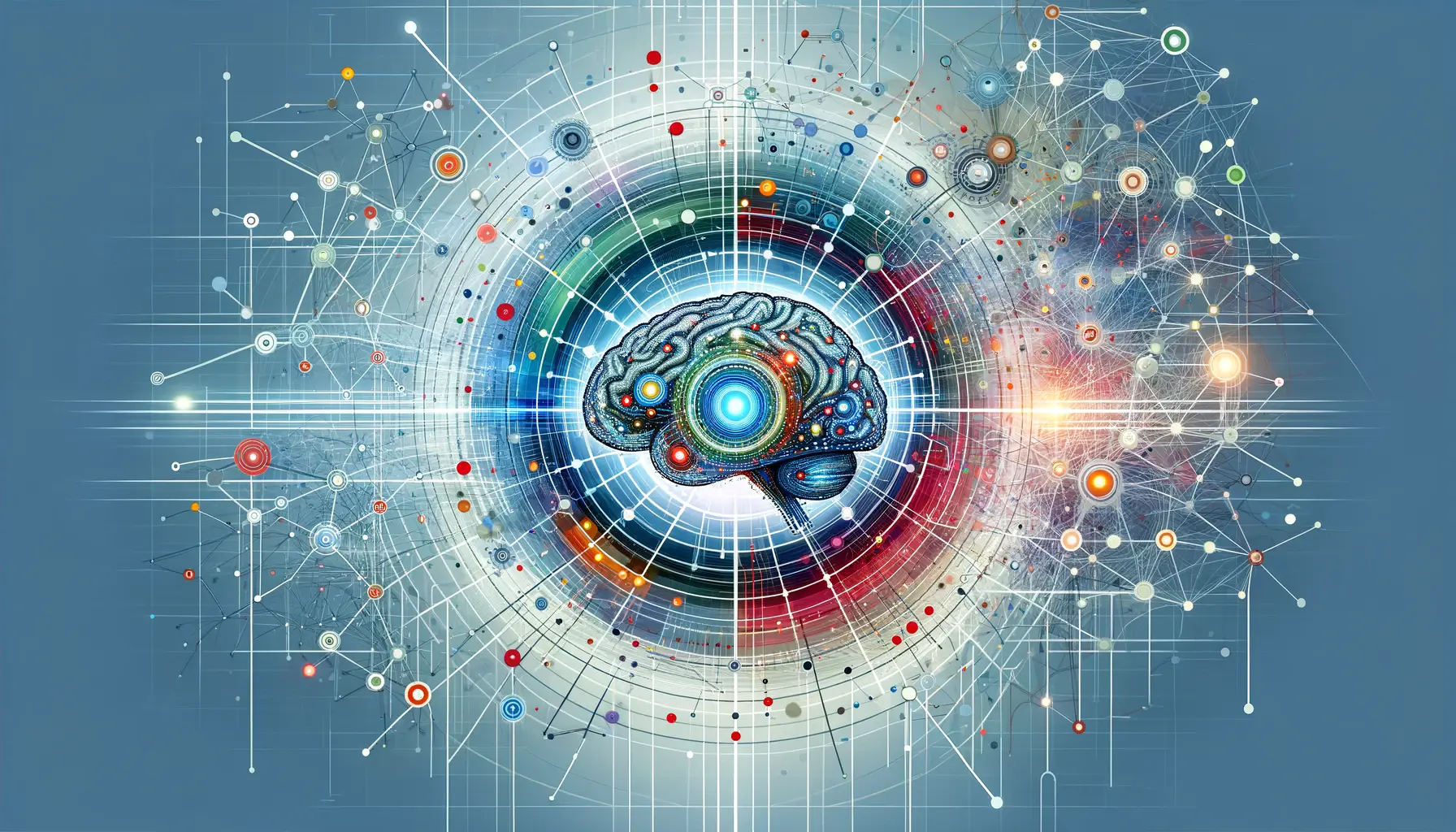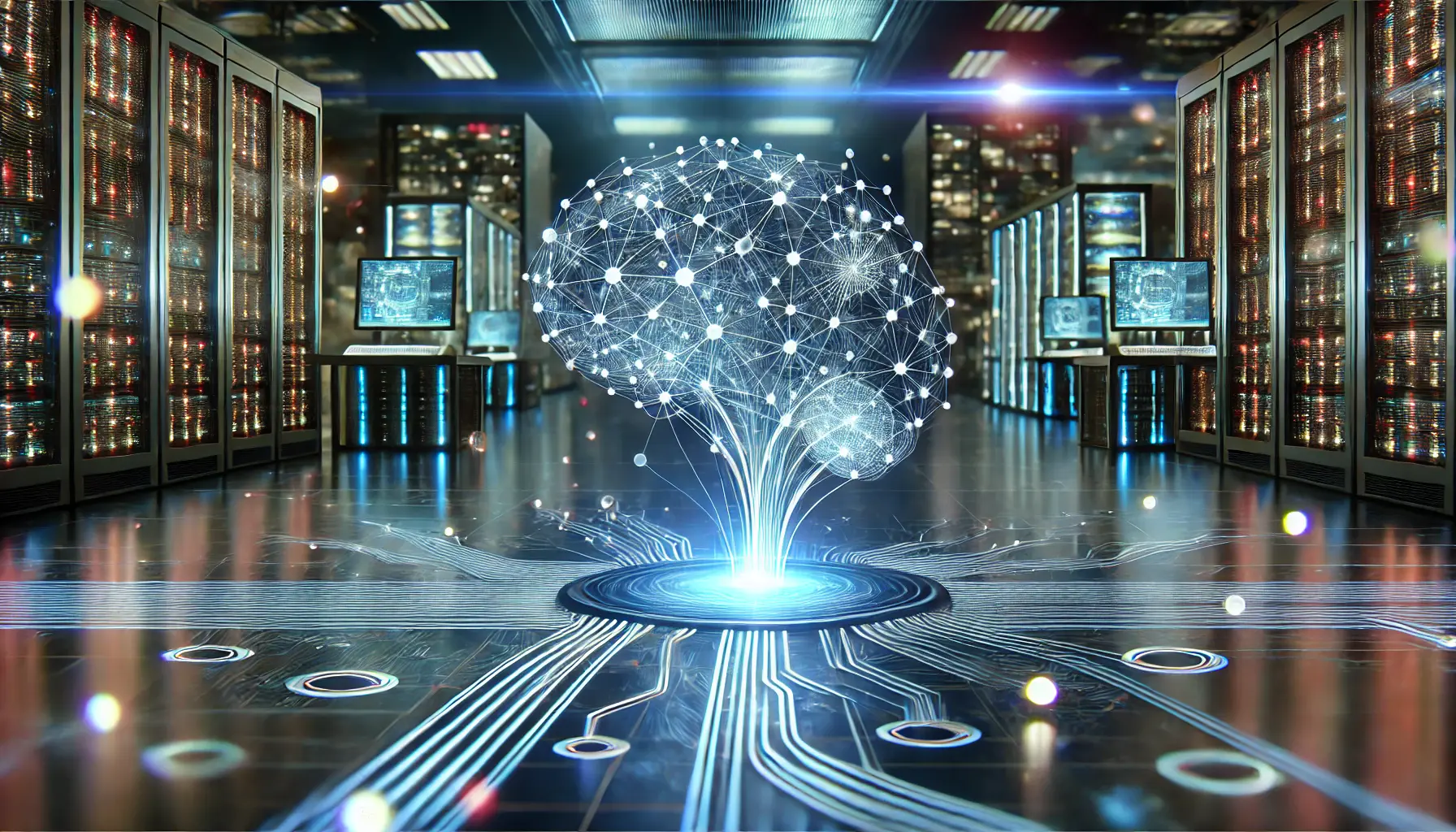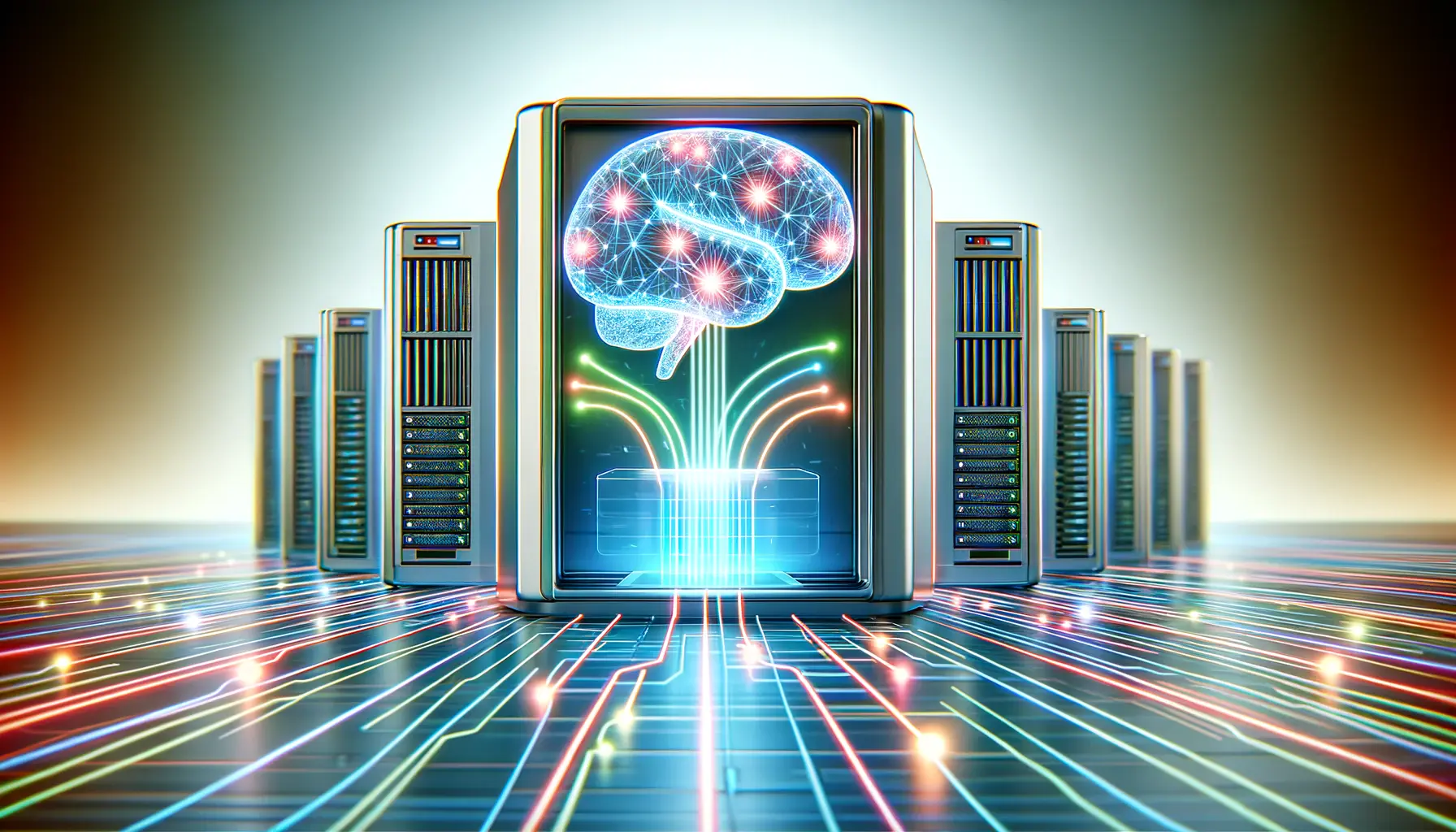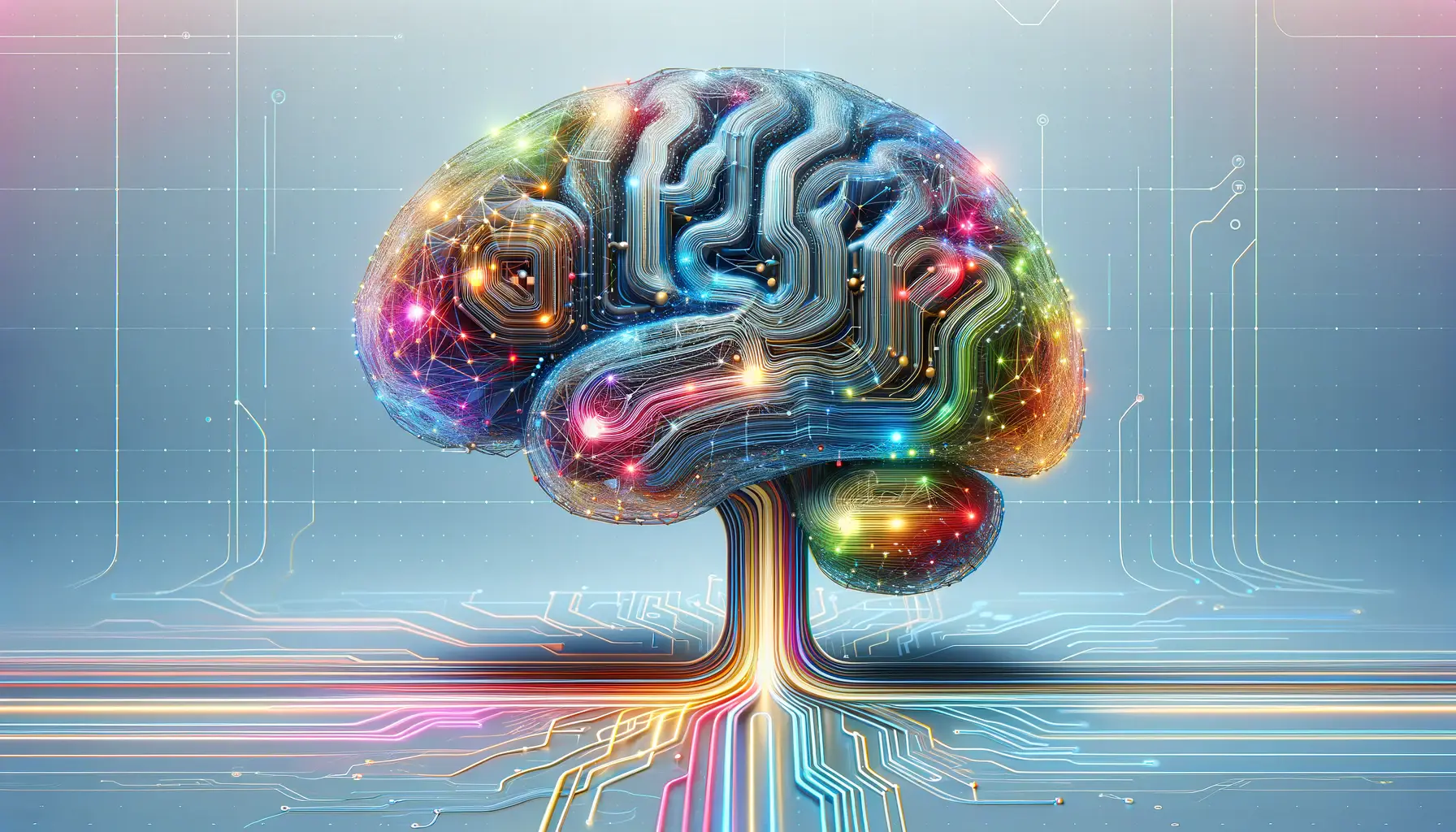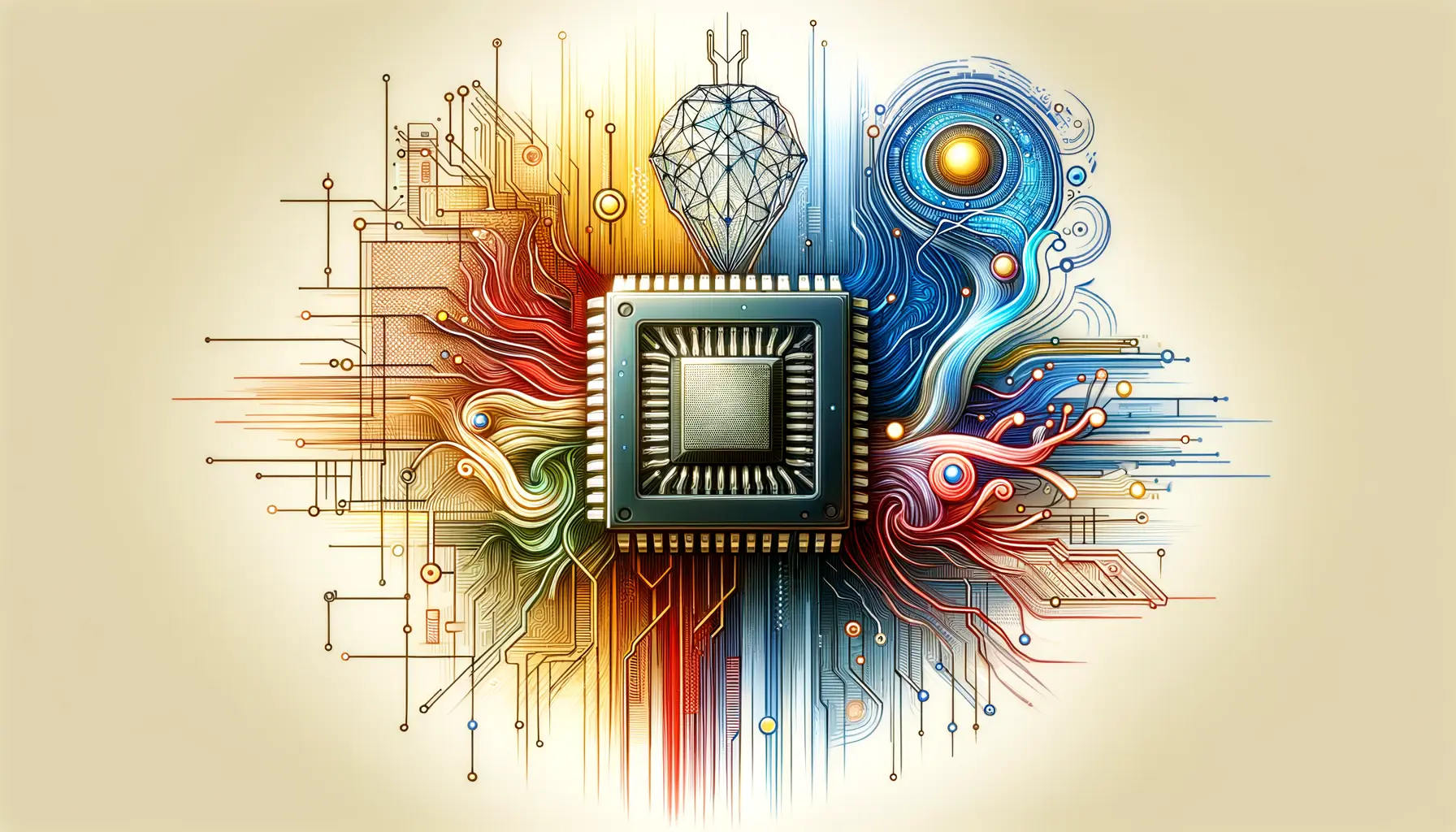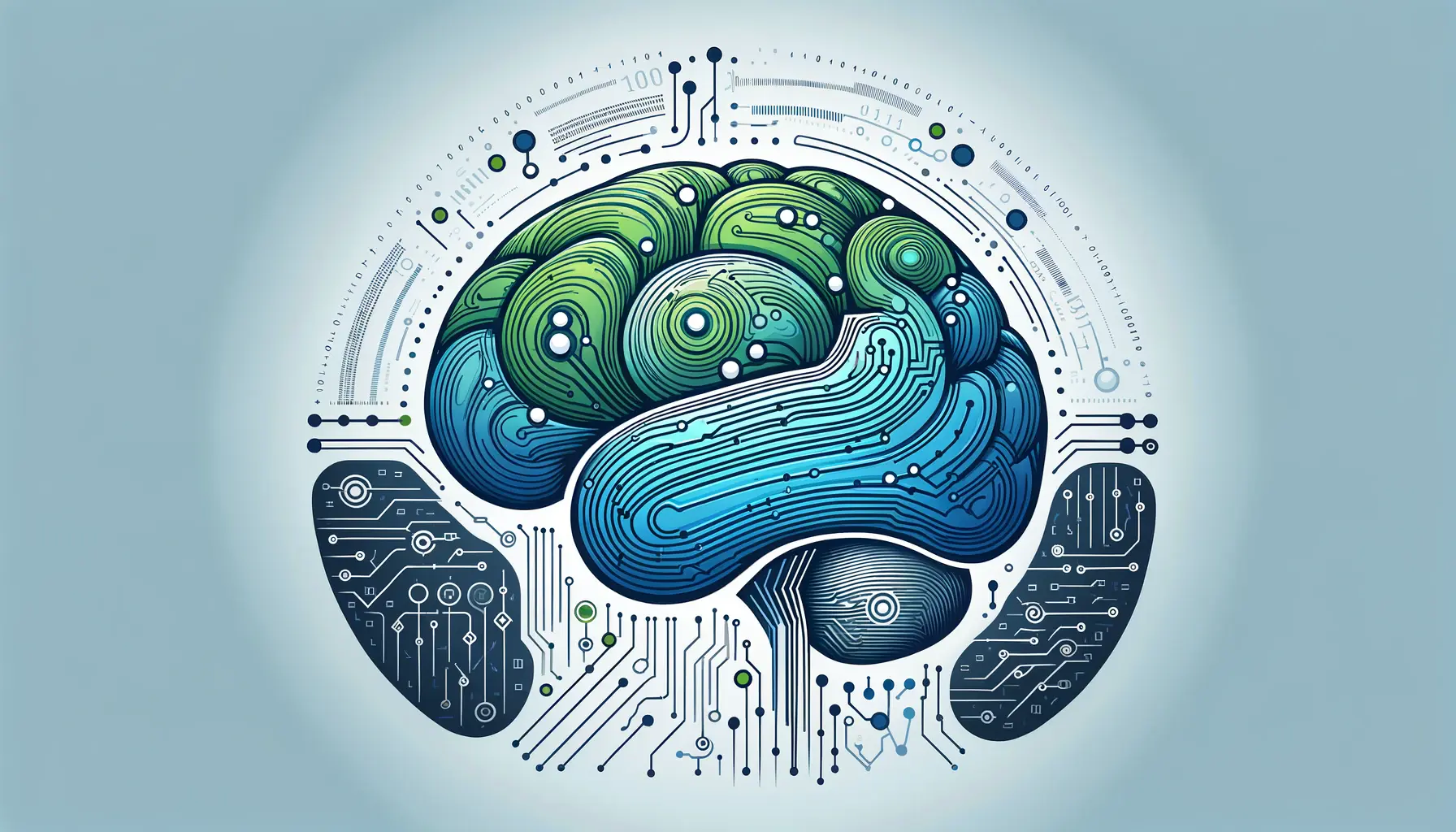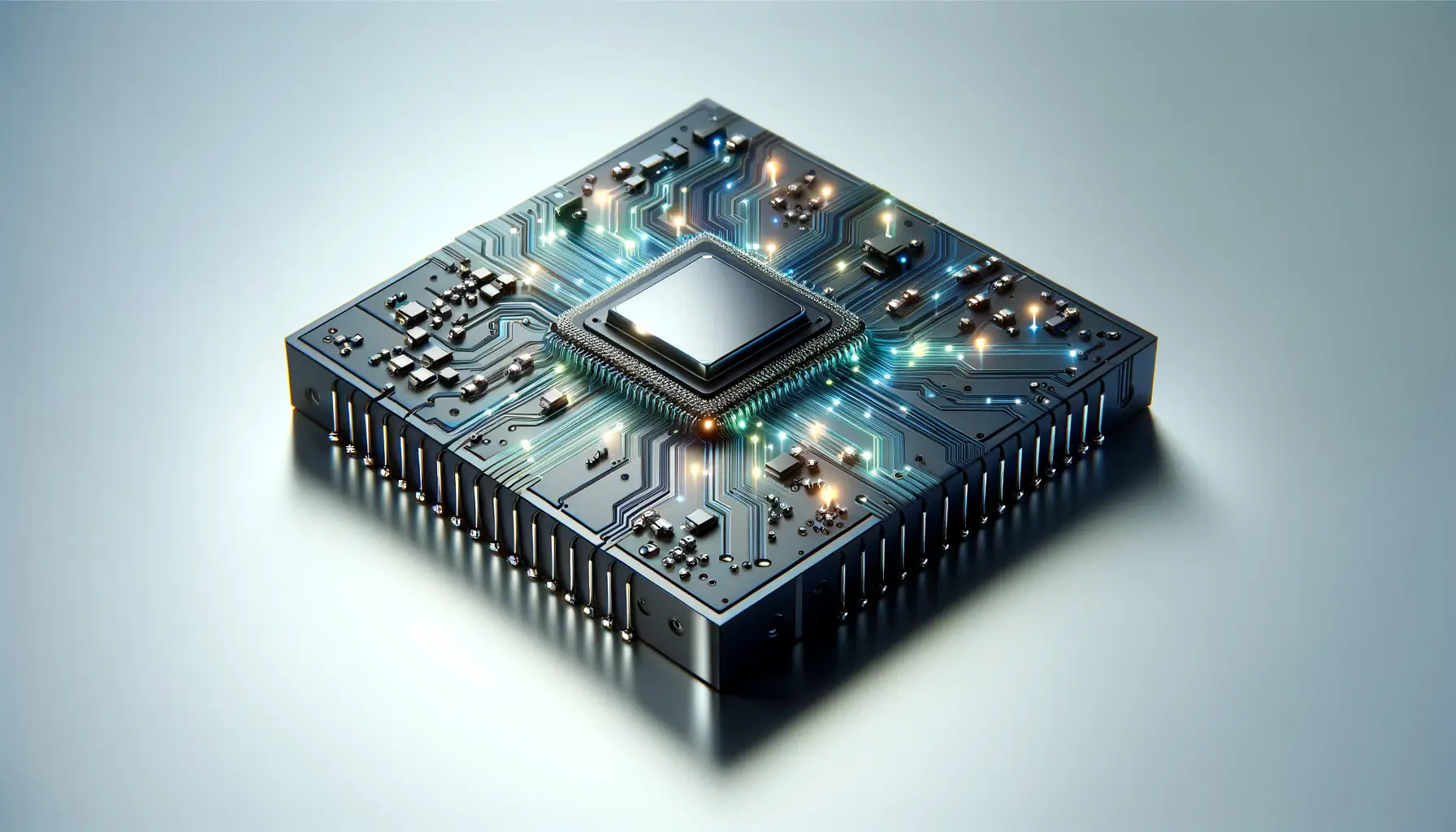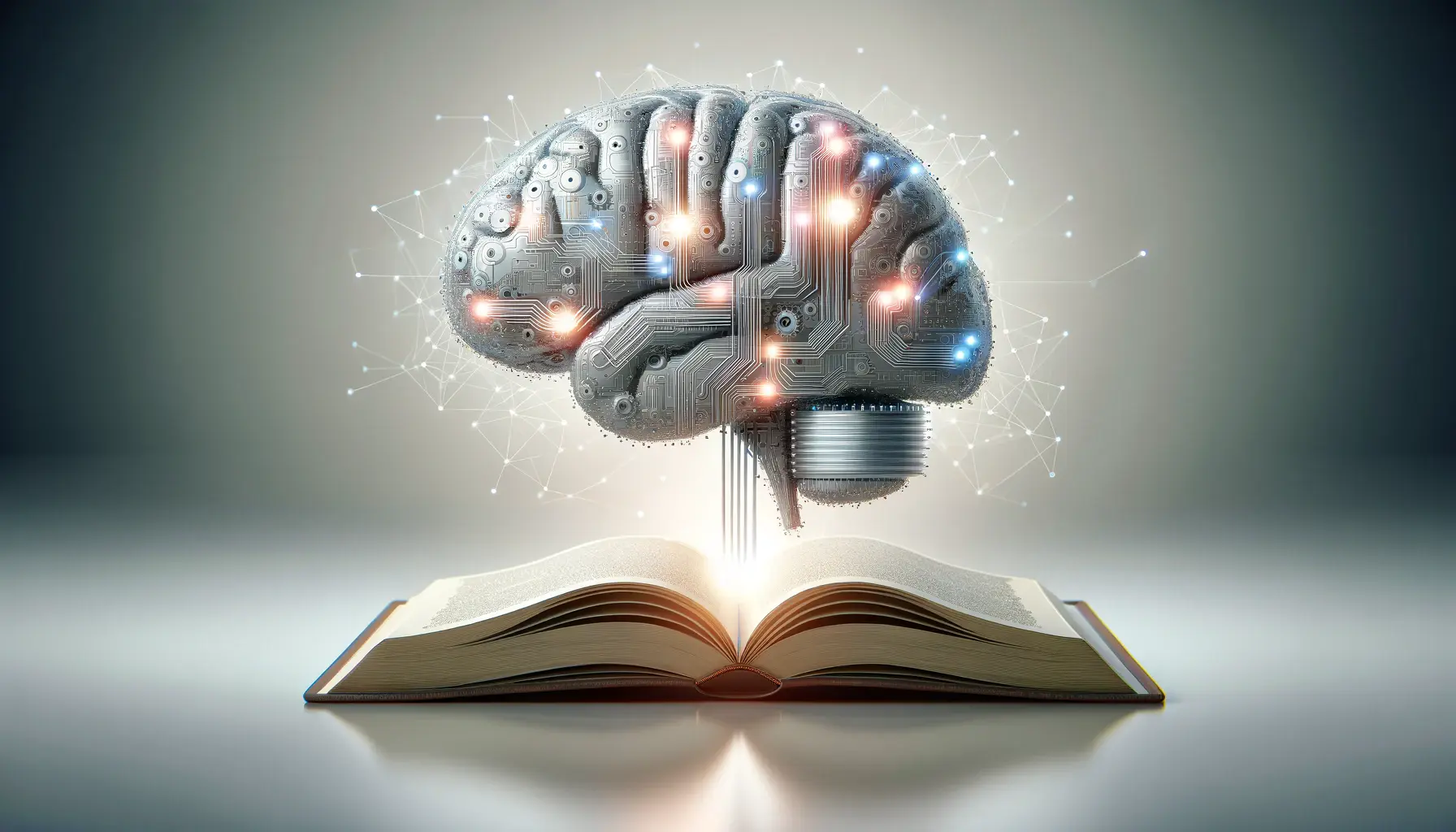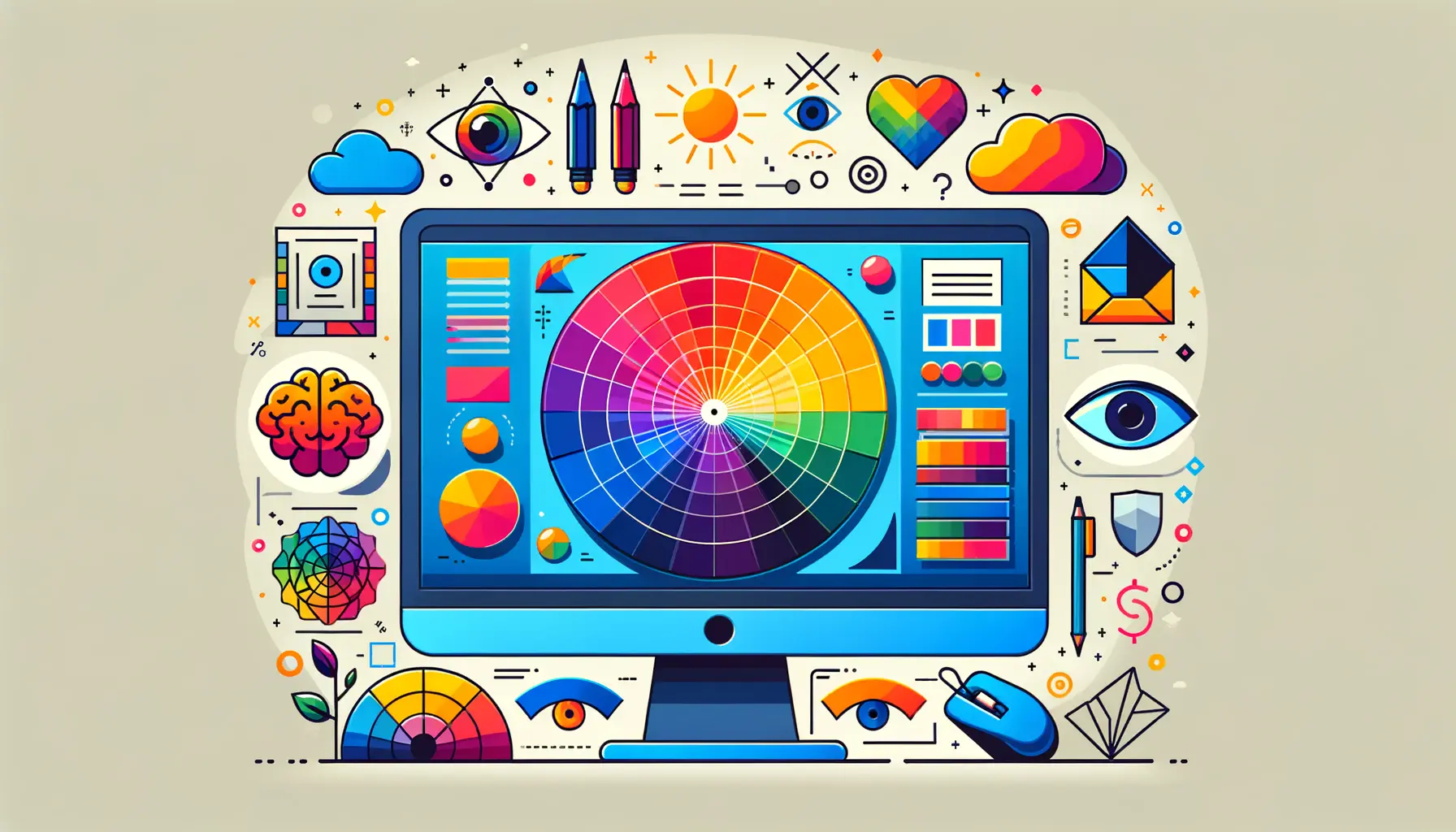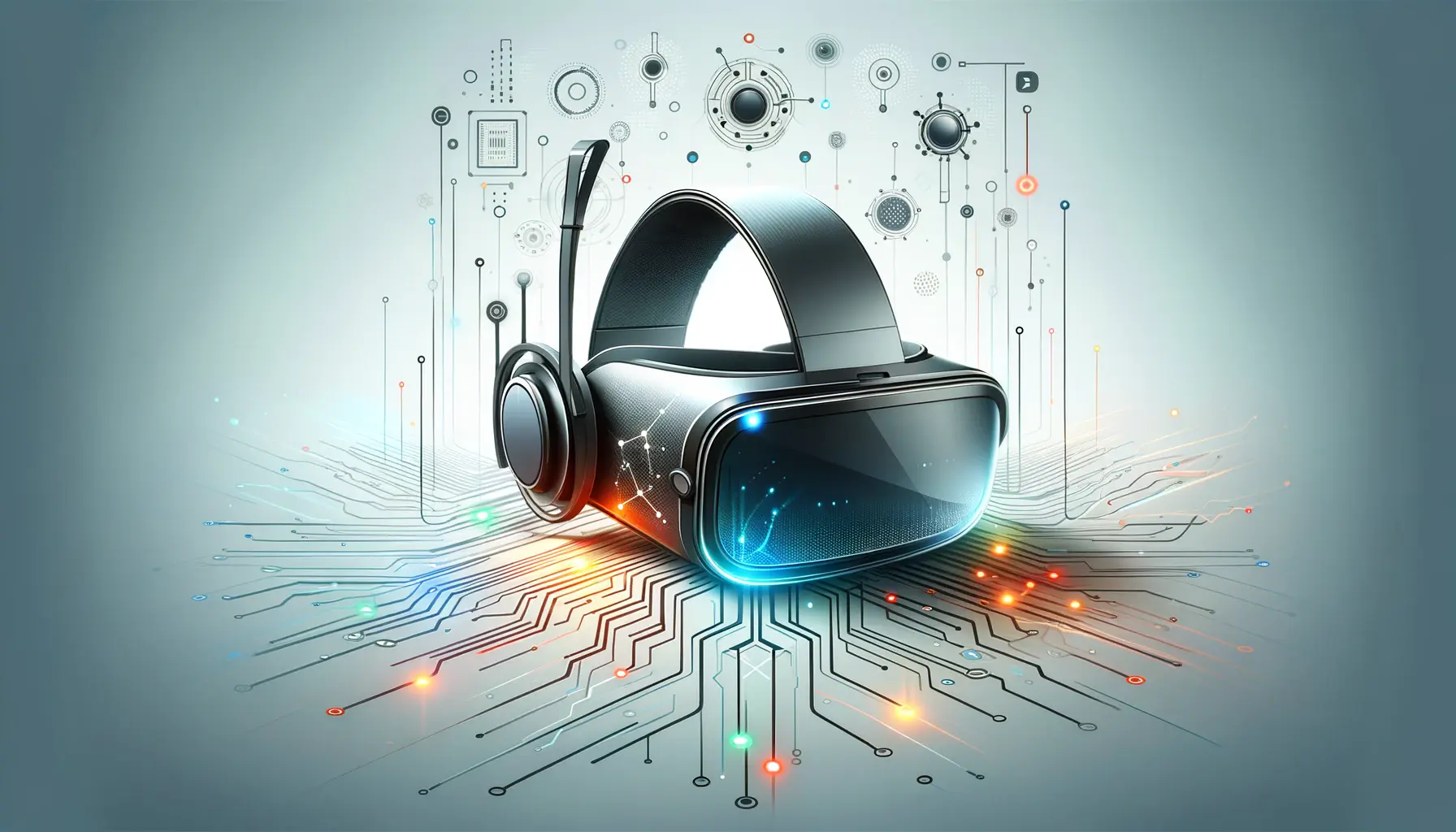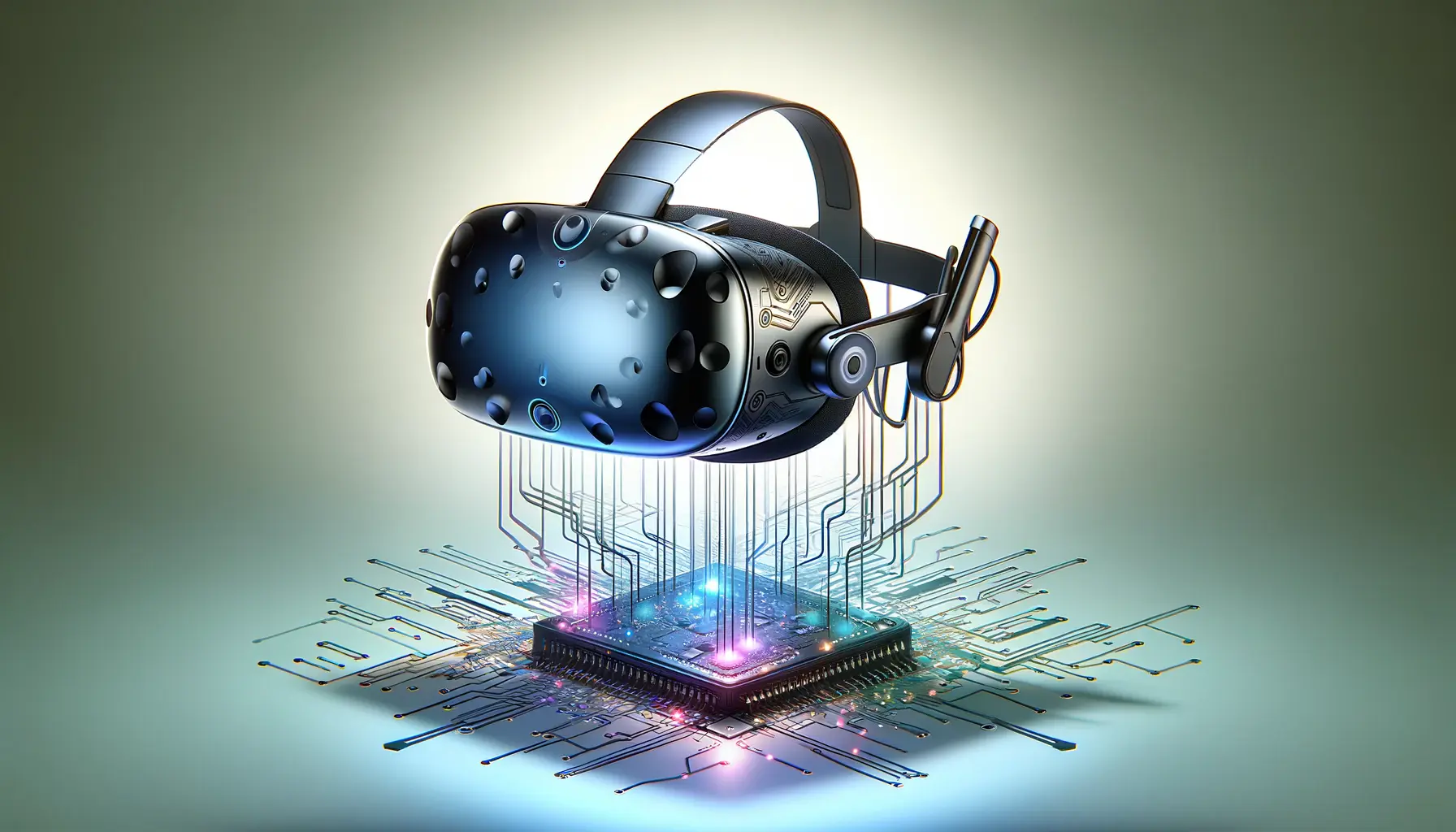The advent of artificial intelligence (AI) has ushered in a new era of technological innovation, transforming industries and reshaping the way we interact with machines.
At the forefront of this revolution is Claude AI, a groundbreaking development by Anthropic.
This AI system represents a significant leap forward in our quest to create machines that can understand, learn, and interact with the world in a way that mimics human intelligence.
The science behind Claude AI’s models is not just a testament to the strides we have made in computational technology but also a glimpse into the future of AI.
Claude AI distinguishes itself through its unique approach to learning and decision-making, leveraging the latest advancements in machine learning and natural language processing.
This AI system is built upon a foundation of large language models (LLMs) that enable it to process and generate human-like text, making it an invaluable tool for a wide range of applications, from customer service to content creation.
The essence of Claude AI lies in its ability to understand context, reason with logic, and provide responses that are not only relevant but also insightful.
- Large Language Models
- Advancements in Natural Language Processing
- Enhancing AI with Machine Learning
- Applications and Impact of Claude AI
- Challenges and Ethical Considerations
- Future Directions and Potential
- Exploring the Impact on Society and Industry
- Embracing the Future with Claude AI
- Claude AI: Frequently Asked Questions
Large Language Models
The Backbone of Claude AI
At the heart of Claude AI’s capabilities are the Large Language Models (LLMs) that serve as the backbone of its intelligence.
These models are trained on vast datasets comprising billions of words and phrases, allowing Claude AI to grasp the nuances of human language.
The training process involves the analysis of text from diverse sources, enabling the AI to learn patterns, grammar, and context.
This extensive training is what empowers Claude AI to generate responses that feel remarkably human-like.
The significance of LLMs in Claude AI’s architecture cannot be overstated.
They are what enable the system to perform tasks such as summarization, question answering, and even code writing with a high degree of accuracy.
The adaptability of LLMs also means that Claude AI can be fine-tuned for specific industries or applications, making it a versatile tool for businesses and developers alike.
Science: Revolutionizing Interaction with AI
Claude AI’s reliance on LLMs has revolutionized the way we interact with artificial intelligence.
Unlike traditional AI systems that require explicit programming for each new task, Claude AI can understand instructions in natural language, making it more accessible to users without technical expertise.
This ease of interaction opens up new possibilities for leveraging AI in everyday tasks, from drafting emails to generating creative content.
Moreover, the ability of Claude AI to understand and generate human-like text has significant implications for the future of communication.
It offers a glimpse into a world where AI can serve as a companion, advisor, or assistant, seamlessly integrating into our daily lives.
The potential for Claude AI to enhance productivity, creativity, and even empathy in our interactions with machines is immense, marking a new chapter in the evolution of artificial intelligence.
The science behind Claude AI’s models, particularly its use of Large Language Models, is a pivotal advancement in making AI more human-like and accessible for a wide range of applications.
Advancements in Natural Language Processing
The evolution of Claude AI is deeply intertwined with advancements in Natural Language Processing (NLP), a domain of AI that focuses on the interaction between computers and humans using natural language.
The goal of NLP is to enable computers to understand, interpret, and produce human languages in a valuable way.
Claude AI’s proficiency in understanding context and generating coherent, contextually relevant responses is a direct result of breakthroughs in NLP technologies.
One of the key components of NLP that has significantly contributed to the development of Claude AI is the concept of transformers.
Transformers are a type of deep learning model that has revolutionized the way machines understand textual data.
By leveraging attention mechanisms, transformers can focus on different parts of the input data at different times, enabling more effective learning from the sequence of words in a text.
This has allowed Claude AI to achieve remarkable levels of comprehension and response generation.
- Tokenization: The process of breaking down text into smaller units (tokens) for easier processing. Claude AI utilizes advanced tokenization techniques to better understand the structure and meaning of sentences.
- Contextual Embeddings: Unlike traditional models that assign a fixed representation to words regardless of their context, Claude AI uses contextual embeddings to capture the meaning of words based on their usage in a sentence. This leads to a more nuanced understanding of language.
- Sequence Modeling: Claude AI excels in predicting the next word in a sequence, making it adept at generating coherent and contextually appropriate text. This capability is fundamental to its performance in tasks like content creation and conversation.
These NLP advancements have not only propelled Claude AI to the forefront of AI technology but have also opened up new avenues for research and application.
By harnessing the power of NLP, Claude AI is able to navigate the complexities of human language, making it an invaluable asset in areas ranging from customer service automation to personalized education.
The integration of advanced NLP techniques is crucial for enhancing Claude AI’s understanding of human language, making it a versatile tool capable of transforming industries through improved communication and automation.
Enhancing AI with Machine Learning
Machine Learning (ML) is another cornerstone in the development of Claude AI, working hand in hand with Natural Language Processing to refine the system’s learning capabilities.
ML is a subset of AI focused on building systems that learn from data, identifying patterns, and making decisions with minimal human intervention.
Claude AI’s ability to improve over time, adapting to new information and evolving user needs, is a testament to the sophisticated ML algorithms that underpin its architecture.
Supervised and Unsupervised Learning
Claude AI benefits from both supervised and unsupervised learning methods.
Supervised learning involves training the model on a labeled dataset, where the desired output is known, allowing Claude AI to learn from examples.
This method is crucial for tasks where accuracy and reliability are paramount, such as content moderation and sentiment analysis.
On the other hand, unsupervised learning does not require labeled data.
Instead, it allows Claude AI to explore data independently, identifying hidden patterns and relationships.
This is particularly useful for discovering new insights in large datasets or generating creative content.
Reinforcement Learning
Reinforcement learning is a type of ML that teaches Claude AI to make decisions by rewarding desired behaviors and penalizing undesired ones.
This approach is akin to teaching a child through feedback.
It’s instrumental in refining Claude AI’s decision-making processes, especially in complex scenarios where multiple factors must be considered.
For instance, reinforcement learning helps Claude AI optimize its responses for helpfulness and relevance, ensuring that the AI consistently aligns with user expectations and objectives.
- Continuous Learning: Claude AI is designed to continuously learn from interactions, improving its performance and accuracy over time. This ability to learn from real-world use ensures that Claude AI remains up-to-date and effective.
- Adaptability: The use of ML enables Claude AI to adapt to various domains and applications, from automating customer service to supporting research and development efforts across different industries.
- Personalization: Through ML, Claude AI can offer personalized experiences, tailoring responses based on individual user preferences, history, and context. This makes it an invaluable tool for delivering customized content and recommendations.
Machine Learning is integral to Claude AI’s ability to learn from data, adapt to new challenges, and provide personalized experiences, making it a dynamic and evolving AI system.
Applications and Impact of Claude AI
The practical applications of Claude AI span across various sectors, showcasing its versatility and the broad impact it can have on society.
By integrating advanced AI capabilities into different industries, Claude AI is not just a technological marvel but a tool that can drive efficiency, innovation, and transformation on a global scale.
Content Creation and Management
In the realm of content creation, Claude AI has emerged as a powerful ally for writers, marketers, and media companies.
By generating high-quality, contextually relevant content at scale, Claude AI helps businesses keep up with the demands of content marketing and online presence management.
From drafting articles and reports to creating engaging social media posts, Claude AI’s ability to understand tone, style, and subject matter makes it an invaluable resource for content-driven industries.
Customer Service Enhancement
Customer service departments across the globe are leveraging Claude AI to provide prompt, accurate, and personalized support to their clients.
By automating responses to frequently asked questions and handling routine inquiries, Claude AI allows human agents to focus on more complex and sensitive issues.
This not only improves efficiency but also enhances the overall customer experience, leading to higher satisfaction and loyalty.
Education and Learning
Claude AI’s impact extends into the educational sector, where it is used to create personalized learning experiences for students.
By analyzing individual learning patterns and preferences, Claude AI can tailor educational content and recommendations, making learning more engaging and effective.
Furthermore, Claude AI serves as a virtual tutor, providing explanations, answering questions, and offering feedback, thereby supporting students in their educational journey.
- Healthcare: In healthcare, Claude AI assists in analyzing medical data, supporting diagnostic processes, and providing insights for personalized treatment plans. Its ability to process and interpret vast amounts of medical literature and patient data can significantly aid in medical research and patient care.
- Finance and Banking: Claude AI is revolutionizing the finance sector by automating routine tasks, analyzing market trends, and providing personalized financial advice. Its capabilities in data analysis and prediction are invaluable for risk assessment, fraud detection, and customer service in banking and finance.
- Research and Development: Researchers leverage Claude AI to sift through scientific papers, extract relevant information, and generate new hypotheses. This accelerates the pace of discovery and innovation, particularly in fields like pharmaceuticals, environmental science, and engineering.
The diverse applications of Claude AI across content creation, customer service, education, healthcare, finance, and research highlight its potential to revolutionize industries and improve lives through AI-driven solutions.
Challenges and Ethical Considerations
While Claude AI represents a significant advancement in artificial intelligence, its deployment and integration into society are not without challenges.
Ethical considerations, data privacy concerns, and the potential for misuse are critical issues that need to be addressed to ensure the responsible development and use of AI technologies like Claude AI.
Data Privacy and Security
One of the paramount concerns surrounding the use of Claude AI involves data privacy and security.
As Claude AI processes vast amounts of data, including potentially sensitive information, ensuring the confidentiality and integrity of this data is crucial.
Implementing robust data protection measures and adhering to strict privacy regulations are essential steps in mitigating risks and safeguarding user information.
AI Bias and Fairness
Another significant challenge is the potential for AI bias.
Since Claude AI’s learning is based on data it has been trained on, any inherent biases in this data can lead to biased outcomes.
This can have serious implications, especially in sensitive areas such as hiring, law enforcement, and lending.
Efforts to identify, understand, and correct biases in AI models are vital to ensure fairness and equity in AI-driven decisions.
Transparency and Explainability
Ensuring transparency and explainability in AI systems like Claude AI is essential for building trust and accountability.
Users and stakeholders must be able to understand how AI decisions are made, particularly in high-stakes scenarios.
Developing AI models that are not only effective but also interpretable and transparent is a key challenge for AI researchers and developers.
- Regulatory Compliance: Navigating the complex landscape of AI regulation and ensuring compliance with evolving legal standards is a challenge for organizations deploying AI solutions like Claude AI.
- Job Displacement: The automation capabilities of Claude AI raise concerns about job displacement and the future of work. Addressing these concerns through retraining programs and policies that support workforce transition is crucial.
- AI Misuse: The potential misuse of AI technologies for malicious purposes, such as creating misleading content or automating cyber attacks, underscores the need for ethical guidelines and security measures to prevent abuse.
Addressing the challenges and ethical considerations associated with Claude AI is essential for harnessing the benefits of AI while minimizing risks and ensuring a positive impact on society.
Future Directions and Potential
The journey of Claude AI is far from over, with future directions promising to further expand its capabilities and potential applications.
As technology evolves, so too will the ways in which Claude AI can be utilized, driving innovation and offering solutions to some of the most pressing challenges facing society today.
Advancements in AI Technology
Continued research and development in AI and machine learning are set to introduce new functionalities and improvements to Claude AI.
Future versions may exhibit enhanced understanding of complex contexts, more nuanced language generation, and even emotional intelligence.
These advancements will enable Claude AI to provide more sophisticated interactions, making it an even more integral part of our digital lives.
Integration into New Domains
As Claude AI becomes more advanced, its integration into new domains and industries is inevitable.
Fields such as environmental science, urban planning, and humanitarian aid stand to benefit from AI-driven insights and solutions.
Claude AI could play a crucial role in climate change analysis, smart city development, and managing disaster response efforts, showcasing the versatile potential of AI to contribute to global challenges.
Enhancing Human-AI Collaboration
The future of Claude AI also lies in enhancing human-AI collaboration.
By developing systems that complement human skills and creativity, Claude AI can augment human capabilities in unprecedented ways.
Whether it’s assisting researchers in discovering new scientific breakthroughs, helping artists create new forms of art, or enabling doctors to provide better patient care, the potential for Claude AI to work alongside humans is boundless.
- Personalized AI Assistants: Claude AI could evolve into highly personalized AI assistants, offering tailored advice, learning support, and companionship, thereby enriching personal and professional lives.
- Global Challenges: Leveraging Claude AI for addressing global challenges such as poverty, education, and health could lead to innovative solutions that make a tangible difference in the world.
- AI Ethics and Governance: The development of ethical frameworks and governance models for AI will be crucial in guiding the responsible use of technologies like Claude AI, ensuring they benefit humanity as a whole.
The future of Claude AI is not just about technological advancements but also about how these technologies are applied to enhance human lives, address societal issues, and foster a more sustainable and equitable world.
Exploring the Impact on Society and Industry
The deployment of Claude AI across various sectors is not just transforming industries but also shaping society in profound ways.
As we continue to integrate AI into our daily lives, its impact on how we work, learn, and interact with each other is becoming increasingly evident.
The influence of Claude AI extends beyond mere technological innovation, heralding a new era of efficiency, creativity, and human-AI collaboration.
Revolutionizing Workplaces
Claude AI is set to revolutionize workplaces by automating routine tasks, enhancing productivity, and fostering innovation.
Industries ranging from finance to healthcare are witnessing a paradigm shift as AI-driven solutions streamline operations and free up human workers to focus on more strategic and creative tasks.
This shift not only boosts efficiency but also encourages a more dynamic and innovative work culture, where AI and humans collaborate to achieve common goals.
Transforming Education and Learning
In the realm of education, Claude AI is breaking new ground by personalizing learning experiences and making education more accessible.
By adapting to individual learning styles and pacing, Claude AI can offer customized tutoring and support, making learning more engaging and effective.
This has the potential to democratize education, providing high-quality learning opportunities to students regardless of their geographical location or socioeconomic status.
Shaping Social Interactions
The influence of Claude AI on social interactions is multifaceted.
On one hand, AI-driven communication tools are making it easier for people to connect and collaborate across distances.
On the other hand, the rise of AI companions and chatbots is opening up new avenues for social interaction, offering companionship and support to those in need.
As Claude AI becomes more integrated into social platforms, its role in shaping online communities and interactions will continue to evolve.
- Ethical AI Use: The widespread adoption of Claude AI underscores the importance of ethical AI use, prompting discussions on privacy, data security, and the societal implications of AI.
- Accessibility and Inclusion: Claude AI has the potential to make technology more accessible and inclusive, breaking down barriers for people with disabilities or those who lack access to traditional educational resources.
- Global Impact: On a global scale, Claude AI offers solutions to pressing challenges such as healthcare access, environmental sustainability, and economic development, showcasing the potential of AI to contribute positively to society.
It’s a misconception that AI like Claude AI will lead to widespread job displacement without offering new opportunities. In reality, AI is creating new roles and industries, emphasizing the need for adaptability and lifelong learning.
Embracing the Future with Claude AI
The journey through the intricate world of Claude AI reveals a landscape where technology not only mimics human intelligence but also amplifies our capabilities, reshapes industries, and redefines societal norms.
As we stand on the brink of a new era in artificial intelligence, the science behind Claude AI’s models offers a beacon of potential, illuminating the path towards a future where AI and humans coexist in harmony, driving progress and innovation.
The Harmonious Symphony of AI and Human Potential
The evolution of Claude AI is not just a testament to technological advancement but a narrative of human ingenuity and the endless quest for knowledge.
The seamless integration of machine learning and natural language processing within Claude AI’s framework exemplifies how AI can become an extension of human intellect, augmenting our abilities and enabling us to achieve more than ever before.
This symbiotic relationship between AI and human potential is the cornerstone of a future where technology serves to elevate humanity.
Charting the Course for Ethical AI Utilization
As we navigate the complexities of integrating AI into the fabric of society, the ethical considerations surrounding Claude AI underscore the importance of responsible innovation.
The journey ahead demands a concerted effort to ensure that AI technologies like Claude AI are developed and deployed with a keen awareness of their societal impact, emphasizing:
- Data privacy and the protection of individual rights
- The mitigation of AI bias to foster fairness and inclusivity
- Transparency in AI decision-making processes
By addressing these ethical challenges head-on, we can harness the full potential of Claude AI while safeguarding the values that define us as a society.
Fostering a Future of Inclusive and Sustainable Growth
The potential of Claude AI to revolutionize industries and contribute to solving global challenges is immense.
From transforming education and healthcare to advancing environmental sustainability, Claude AI embodies the promise of AI to catalyze positive change.
However, realizing this potential requires a commitment to inclusive and sustainable growth, ensuring that the benefits of AI are accessible to all.
This entails:
- Democratizing access to AI technologies to bridge the digital divide
- Leveraging AI for social good, addressing global challenges such as poverty, health, and climate change
- Investing in education and workforce development to prepare society for the future of work
In conclusion, the science behind Claude AI’s models opens up a world of possibilities, offering a glimpse into a future where AI enhances our lives in myriad ways.
As we embrace this future, it is imperative that we navigate the journey with foresight, responsibility, and a commitment to the betterment of humanity.
The story of Claude AI is just beginning, and its chapters will be written by the collective efforts of those who dare to dream, innovate, and strive for a world where technology and humanity thrive together.
Claude AI: Frequently Asked Questions
Explore the most common inquiries about Claude AI, offering insights into its capabilities, usage, and access.
Access Claude AI through the Anthropic website or its dedicated app, available for various platforms.
Check the version in the settings or about section of the Claude AI interface you’re interacting with.
Claude.ai is accessible via its official website or through API integration for developers and researchers.
No, Claude AI does not directly access the internet for information retrieval, ensuring privacy and security.
Yes, Claude AI offers a free version with comprehensive features, with no current premium subscriptions.
Yes, Claude AI is designed to comprehend context, providing relevant responses based on conversation history.
Claude AI adheres to strict data privacy protocols, ensuring user data is protected and confidential.
Claude AI stands out for its advanced understanding of context, ethical AI use, and focus on user-centric interactions.
